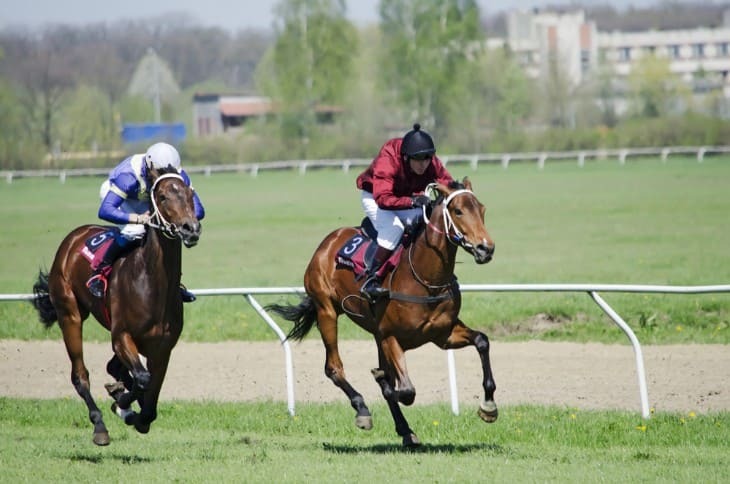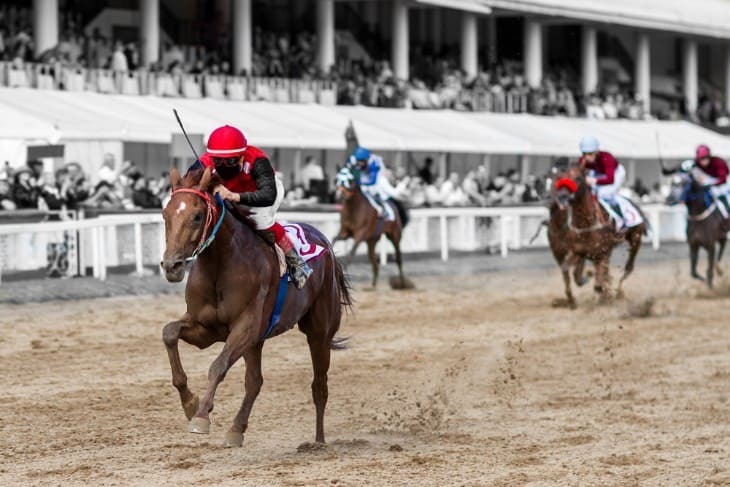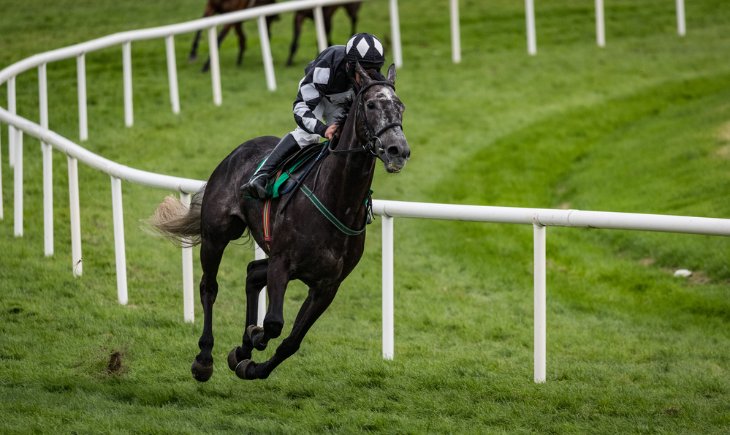Whether you're a seasoned punter or a curious newcomer, the quest for picking a winning horse can be both exhilarating and daunting. In this comprehensive guide, we will delve into the art and science of handicapping, equipping you with the tools to make informed choices and increase your chances of backing a triumphant steed.
Understanding Horse Racing
At its core, horse racing is a fascinating blend of athleticism, strategy, and chance. It's a sport that demands a keen eye, analytical skills, and an appreciation for the intricate dynamics at play on the track. Before we delve into the finer points of selecting a winning horse, let's take a moment to understand the essence of horse racing.
From the adrenaline-pumping gallop down the straight to the calculated tactics employed by jockeys and trainers, every facet of a horse race contributes to its outcome. Whether it's the sprint of a short-distance race or the stamina-challenging test of a long-distance contest, understanding the race type and its demands is crucial.
Races can be categorised based on the distance, track surface, and the class of horses participating. The importance of these factors cannot be understated, as they significantly influence a horse's performance. Additionally, learning the unique language of horse racing – from handicaps and stakes to furlongs and photo finishes – will empower you to engage with the sport more confidently.
The Art of Studying Form: Decoding Past Performances
In the world of horse racing, the past often holds the key to the future. The study of a horse's previous performances, commonly referred to as "form," is a cornerstone of successful handicapping. Just as a chess player reviews previous games to strategise, a punter delves into a horse's history to anticipate its potential on race day.
The race card, a comprehensive record of each horse's recent races, is your roadmap to understanding form. Each entry provides valuable insights into a horse's capabilities, including its finishing position, jockey, trainer, and the conditions under which it raced. By scrutinising these details, you can begin to discern patterns, strengths, and weaknesses that may influence a horse's upcoming performance.
The significance of recent form cannot be overstated. A horse that has consistently finished strongly in recent races indicates good fitness and competitive spirit. Conversely, a series of lacklustre performances may signal declining form or underlying issues.
As you peruse the race card, pay attention to factors such as the distance of the race, the track surface, and the class of competition. A horse that has excelled under similar conditions in the past is more likely to replicate its success. Additionally, consider the jockey-trainer partnership – a well-coordinated team can significantly enhance a horse's chances.

Analysing Jockey and Trainer Performance
In the captivating world of horse racing, jockeys and trainers emerge as the strategic maestros behind each race. Their expertise and decision-making prowess can make all the difference between victory and defeat. Analysing the track record of these key players is an essential skill for any discerning punter.
Jockeys, the skilled pilots guiding these majestic creatures, are integral to a horse's performance. A jockey's experience, riding style, and familiarity with a particular horse can significantly impact its chances on race day. Studying a jockey's recent successes, their chemistry with specific horses, and their adaptability to various race conditions provides valuable insights into their potential to guide a horse to victory.
But the jockey is not the sole architect of triumph – trainers hold a crucial role in shaping a horse's racing career. A trainer's expertise in conditioning, strategising, and race planning is instrumental in optimising a horse's performance. Investigate trainers with a history of nurturing successful horses, particularly in specific race types or conditions that match the upcoming event.
Consider their ability to prepare horses for different distances, terrains, and weather conditions. A trainer who has consistently produced winners under similar circumstances indicates a sound understanding of the nuances of horse racing. Pay attention to a trainer's recent form and their success rate at the track, as these indicators can offer valuable insights into their current capabilities.
Evaluating Track Conditions and Weather Factors
The racetrack itself is an ever-changing stage, with its surface and weather conditions playing a pivotal role in determining a horse's performance. From rain-soaked turf to sun-drenched sand, understanding how different surfaces and weather factors affect a horse's running can give you a winning edge.
Track conditions, often categorised as fast, good, yielding, or heavy, refer to the state of the racing surface. A horse's preferred track surface can greatly influence its ability to maintain speed and traction. For instance, some horses excel on firm, dry tracks, while others thrive in muddier, softer conditions. Study a horse's past performance on similar track surfaces to gauge its adaptability.
Weather conditions, too, can be a game-changer. Rain, wind, and temperature fluctuations can impact a horse's comfort and performance. Some horses relish the challenge of adverse weather, while others may struggle to maintain their stride. Factor in how a horse has fared in comparable weather conditions to assess its potential under the prevailing climate.
As you delve into the world of track conditions and weather, keep an eye on race previews and track reports. These insights, often provided by racing experts and meteorologists, offer valuable information about the state of the track and upcoming weather patterns. By considering both the physical characteristics of the racetrack and the atmospheric conditions, you can develop a more nuanced understanding of how these elements influence a horse's chances of emerging victorious.
Unveiling the Secrets of Horse Breeding
In the intricate tapestry of horse racing, the ancestry and lineage of a horse can wield a profound influence on its racing prowess. Delving into the realm of horse breeding opens a window into the genetic foundations that shape a horse's speed, stamina, and overall potential on the track.
The concept of "breeding" goes beyond mere reproduction; it's a deliberate attempt to combine the strengths of different bloodlines to produce superior athletes. Understanding a horse's pedigree – its lineage of ancestors – is akin to tracing a family tree laden with champions and notable performers. Look for horses that hail from successful racing families or have close relatives who excelled in specific race types and conditions.
Consider the sire (father) and dam (mother) of a horse, as well as their ancestors. A sire known for producing agile sprinters might contribute speed genes, while a dam with a history of enduring long races could pass on stamina traits. Analyse the family history to uncover patterns of success across generations, indicating a strong genetic heritage that may contribute to a horse's potential for victory.
Beyond bloodlines, breeding also encompasses the physical attributes and conformation of a horse. Certain physical traits, such as body structure and musculature, can hint at a horse's potential strengths and limitations. While not a foolproof method, a careful assessment of a horse's physical characteristics can provide additional insights into its suitability for different race conditions.
For more information about horse breeding click here: Breeding a Winning Racehorse.
Betting Strategies: Making Informed Wagers
As you immerse yourself in the world of horse racing, it's essential to remember that picking a winning horse is not just about luck; it's about making calculated, informed decisions. Betting on horses requires a strategic approach that combines careful analysis, risk management, and an understanding of betting markets.
One of the fundamental principles of effective betting is managing your bankroll. Set a budget for your betting activities and stick to it. Avoid chasing losses or increasing your stakes impulsively after a losing streak. Instead, adopt a disciplined approach that allows you to enjoy the excitement of horse racing without jeopardising your financial well-being.
Utilise the insights you've gathered about form, jockeys, trainers, track conditions, weather, and breeding to identify horses that align with your assessment of the race. Rather than placing hasty bets based on gut feelings, let your analysis guide your choices.
Consider diversifying your bets to mitigate risk. Instead of putting all your stakes on a single horse, explore different betting options. You can place a combination of win, place, and each-way bets to cover various potential outcomes. This strategy increases your chances of getting a return on your investment, even if your top pick doesn't clinch the victory.
Stay attuned to odds and market trends, as they provide valuable insights into how other bettors are assessing the race. A sudden shift in odds can indicate a horse gaining popularity among punters, while longer odds on a strong contender might present a potentially lucrative opportunity. Balancing your own analysis with market dynamics can help you make well-informed decisions.
The Importance of Odds and Market Trends
In the intricate tapestry of horse racing, odds and market trends act as the pulse of anticipation and expectation. They provide a fascinating glimpse into how the betting public perceives the chances of each horse. Understanding these indicators can empower you to navigate the betting landscape with greater insight and precision.
Odds represent the bookmakers' assessment of a horse's likelihood of winning. A lower odds value indicates a higher perceived chance of victory, while higher odds suggest a less favoured outcome. Learning to interpret odds can help you gauge the general consensus about a horse's potential performance. However, it's important to remember that odds are not infallible predictors – they reflect the collective opinion of bettors and can change rapidly based on various factors.
Market trends, often influenced by expert opinions, insider information, and the ebb and flow of public sentiment, offer a dynamic perspective on horse racing dynamics. Keep a keen eye on how odds evolve as race day approaches. A sudden shift in odds can indicate emerging favourites or unexpected upsets, providing valuable insights into horses that are gaining or losing favour in the eyes of bettors.
Remember, a horse's odds can be influenced by factors beyond its actual racing capabilities, such as media attention, sentimental attachment, or perceived luck. Balancing your analysis of form, jockeys, trainers, and other critical factors with an understanding of odds and market trends will help you make more informed betting decisions.
Watching Races and Spotting Potential Winners
The racetrack comes alive with a symphony of thundering hooves, triumphant roars, and fluttering excitement as horses thunder towards the finish line. Observing races with a discerning eye is an art that requires a blend of focus, intuition, and tactical acumen. By honing your skills in reading races, you can uncover valuable clues that lead to picking winning horses.
As the starting gates open, pay attention to how each horse launches into action. A swift break from the gate can indicate a horse's readiness and enthusiasm to compete. Conversely, a sluggish start might suggest nervousness or lack of confidence. Observe how horses settle into their stride and navigate the early stages of the race, noting whether they comfortably find their rhythm or struggle to maintain pace.
Mid-race dynamics reveal a wealth of information about a horse's strength and strategy. Watch for subtle shifts in positioning, as jockeys make strategic decisions to find the best path to the finish line. Horses that effortlessly move up the ranks, maintaining a steady pace, may have the endurance and speed required to surge ahead in the final stretch.
The climax of any race is the exhilarating dash to the finish line. Observe the burst of energy exerted by each horse and the determination etched on their faces. A horse that displays a strong finishing kick, overtaking competitors with apparent ease, could be a contender for future victories. Analyse how a horse responds to the jockey's cues and its ability to sustain momentum in the final furlongs.
By watching races attentively, you can uncover hidden gems – horses that display potential beyond their previous performances or odds. Coupled with your comprehensive knowledge of form, jockeys, trainers, track conditions, and odds, this practical skill of race observation enhances your ability to identify promising contenders and make well-calculated betting choices.

The Psychological Aspect: Keeping a Clear Head
The psychological aspect of picking winning horses encompasses a delicate balance of rational analysis and emotional composure. Understanding how your thoughts, feelings, and biases influence your decisions can be the ultimate edge in your quest for success.
When you approach a race, it's essential to cultivate a clear and rational mindset. Avoid succumbing to impulsive decisions driven by fleeting emotions. Fear of missing out or the desire to chase losses can cloud your judgment and lead to hasty bets that lack a solid foundation of analysis. Instead, draw on the insights you've gained from studying form, evaluating jockeys and trainers, and analysing race dynamics.
Maintaining discipline is key. Set clear criteria for your selections and stick to your strategy. This requires the ability to remain unfazed by short-term losses and to resist the allure of unlikely longshots that promise big returns. By focusing on the long-term and making decisions rooted in logic, you can navigate the highs and lows of horse racing with equanimity.
Moreover, cultivate a mindset of continuous learning. Each race, win or lose, offers a valuable opportunity to refine your analysis and improve your decision-making. Embrace losses as lessons rather than setbacks, using them to identify areas for improvement and refine your approach. With time, your ability to assess races objectively will grow, and you'll become more adept at making calculated choices.
Armed with these insights into the psychological and ethical dimensions of horse betting, you're poised to approach the world of horse racing with a balanced and discerning perspective. By combining your comprehensive knowledge of form, jockeys, trainers, track conditions, odds, and market trends with a clear and ethical mindset, you'll not only enhance your chances of picking winning horses but also contribute to the vibrancy and integrity of this extraordinary sport.








